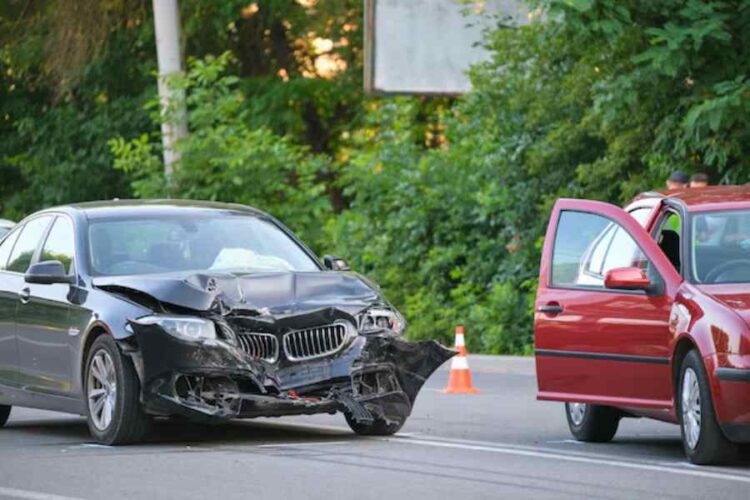Car accidents can leave more than physical damage — they can result in emotional trauma, legal battles, and financial uncertainty. When the dust settles, many victims find themselves asking: Do I need an attorney for a car accident? This question is crucial, especially when dealing with injuries, insurance companies, and complex liability issues.
This in-depth article explores when hiring a lawyer is helpful and necessary. From minor fender benders to severe collisions with disputed fault, knowing when to involve legal representation can dramatically impact your outcome. A skilled car accident attorney can guide you through everything from collecting evidence to dealing with adjusters and court proceedings.
We will walk you through key considerations: when you should hire an attorney, what scenarios demand legal support, and how attorneys help increase the value of your settlement. Each section is packed with actionable information to help you make informed decisions. So, whether you’re a driver, passenger, or pedestrian involved in a crash, this guide is your complete legal compass.
Do I need an attorney for a car accident?
Yes — especially if you’ve suffered injuries, faced disputed liability, or dealt with complex insurance companies. Attorneys protect your rights, handle legal complexities, and often increase your compensation.
Why Hiring a Car Accident Attorney Is Often Essential
In the aftermath of a car accident, many individuals face confusion, stress, and uncertainty. Some assume that dealing directly with their insurance provider will be enough to resolve the situation. However, this isn’t always true — particularly in cases involving injury, unclear fault, or property damage disputes. Understanding the role of a car accident attorney is vital.
An experienced attorney helps victims navigate the legal system and avoid common pitfalls. For example, victims may inadvertently accept a lowball settlement or say something to an insurer that weakens their claim. Legal professionals know how to assess the actual value of a case, factoring in medical expenses, lost wages, pain and suffering, and long-term effects.
Hiring a car accident attorney becomes especially important when liability is unclear or contested. Multiple parties may be involved, and comparative negligence laws can complicate matters. Attorneys gather evidence, obtain expert testimony, and reconstruct accident scenes to build strong cases. Their expertise often differentiates between a denied claim and a successful payout.
Furthermore, if your case goes to court, having representation becomes indispensable. Attorneys understand courtroom procedures, how to cross-examine witnesses, and how to argue persuasively. Even in settlements, insurers are more likely to offer fair compensation when an attorney is involved.
Hiring a car accident attorney can protect your legal rights, reduce stress, and help secure the best financial outcome. It’s not just about legal knowledge — it’s about strategy, advocacy, and peace of mind.
When Should You Contact a Lawyer After a Crash?
Serious Injuries or Ongoing Medical Treatment
If you’ve sustained serious injuries or required hospitalization after a car accident, it’s essential to consider legal representation. Long-term or severe injuries often involve extensive medical care, rehabilitation, and follow-up treatments that extend well beyond the initial incident. An attorney can help calculate current and future damages to ensure you’re not left with out-of-pocket expenses. Legal guidance becomes even more critical when injuries impact your daily functioning or quality of life.
Disputed Fault or Complicated Liability
Determining who is at fault in a car accident isn’t always straightforward. Insurance companies may try to shift blame or reduce payouts when multiple vehicles are involved, or the details are unclear. A car accident attorney can thoroughly investigate, review police reports, consult accident reconstruction experts, and gather witness statements. Their goal is to establish clear liability, so your case stands on solid ground.
Cases Involving Commercial or Government Vehicles
Accidents involving commercial trucks or government-owned vehicles bring added complexity. These cases typically include different insurance policies, legal protections, and additional parties. Specialized legal experience is crucial in navigating these cases, especially when dealing with corporate legal teams or government procedures that differ from standard personal claims.
Low Settlement Offers from Insurers
Insurance companies often propose quick settlements that do not reflect the full extent of your damages. Without legal support, many victims accept these offers unknowingly. An attorney can assess the offer’s fairness and negotiate assertively for an amount that covers your losses.
Financial Loss from Time Off Work or Disability
If your injuries have caused you to miss work or suffer permanent disability, a lawyer can help you calculate lost income and diminished earning capacity. These financial elements are essential in reaching a full and fair settlement.
What Does a Car Accident Lawyer Do?
A car accident attorney takes on several critical responsibilities throughout the claims process, acting as your guide, advocate, and negotiator. Their involvement can significantly influence the outcome of your case and help you avoid costly mistakes. Here’s how they contribute at each stage:
- Legal Consultation
One of the first things an attorney does is evaluate your situation through a free consultation. They assess the strength of your claim, determine fault, and explain your legal rights and options. This helps you make informed decisions from the beginning. - Claim Filing
Filing a claim involves complex legal documents and strict deadlines. Your attorney ensures everything is submitted correctly and on time, preventing errors that could delay or weaken your case. - Evidence Gathering
Strong claims are built on substantial evidence. A car accident lawyer collects essential documentation such as police reports, medical records, photographs, and witness statements. They may also work with expert witnesses to further support your claim. - Negotiation with Insurance Companies
Insurers often aim to minimize payouts. Your attorney handles all communication with insurance adjusters, negotiating firmly to secure the compensation you deserve — not just the first offer. - Litigation and Court Representation
If negotiations fail or the insurer refuses a fair offer, your attorney can file a lawsuit and represent you in court. They manage all aspects of litigation, from presenting evidence to cross-examining witnesses. - Maximizing Compensation
Attorneys understand how to calculate both immediate and long-term damages. They aim to secure full compensation covering medical costs, lost wages, property damage, and emotional suffering.
How Much Does It Cost to Hire a Car Accident Attorney?
Many people worry about attorney fees, but most personal injury lawyers work on a contingency fee basis. This means you don’t pay unless they win your case. Typically, the fee ranges from 25% to 40% of the final settlement. This setup benefits clients because it reduces the financial risk of pursuing justice.
Moreover, a contingency arrangement means your attorney is motivated to secure the best possible outcome for you. Some cases may involve additional costs for expert witnesses, document requests, or court filings, but your lawyer should explain these upfront. Always discuss the fee structure in your initial consultation to avoid surprises.
Even with these costs, many victims find that hiring a lawyer increases their net compensation, making the investment worthwhile. In short, hiring an attorney for a car accident doesn’t have to be a financial burden — it’s often a wise financial decision.
Should You Hire an Attorney for a Car Accident with Minor Injuries?
Minor Doesn’t Always Mean Simple: Just because an injury seems minor initially doesn’t mean it won’t become a more significant issue later. Whiplash, soft tissue injuries, and even mild concussions can worsen over time, leading to chronic pain or extended time off work. What appears straightforward on the surface may have hidden consequences that only a medical professional can detect. Therefore, evaluating your condition thoroughly is important before deciding not to pursue legal help.
Insurance May Still Undervalue Your Claim: Insurance companies are notorious for downplaying injuries, especially minor ones. They may offer a settlement that barely covers initial medical bills, ignoring future treatment, missed income, or ongoing discomfort. Without legal guidance, you might accept far less than your case is worth. An attorney can assess the actual value of your claim and ensure all aspects of your suffering are accounted for.
Legal Advice Costs Nothing Upfront: Many people hesitate to consult a lawyer because they’re worried about costs. However, most personal injury attorneys offer free consultations and work on a contingency fee basis, meaning they only get paid if you win. That makes getting a professional legal opinion risk-free, even for what may appear to be a small case.
Peace of Mind Is Valuable: Navigating the claims process alone can be overwhelming. Even in seemingly simple situations, a lawyer can handle paperwork, negotiate with insurers, and prevent you from making costly mistakes. Having someone on your side provides clarity, confidence, and peace of mind during a stressful time.
Final Thoughts
In most cases, yes. From navigating complex legalities to dealing with aggressive insurance companies, having a skilled car accident lawyer can make a significant difference. Getting legal advice can save time, money, and stress, even when injuries seem minor. Legal professionals act as your advocate, ensuring you’re not taken advantage of, and your rights are upheld. Hiring an attorney is often the smartest choice if you want fair compensation, expert negotiation, and less hassle.
FAQ’s
Q. Is it worth getting an attorney for a minor car accident?
A. Yes, it is. Even what seems like a minor accident can result in delayed injuries or long-term complications. An attorney ensures that your medical expenses, time off work, and any future damages are included in your claim, preventing you from being under-compensated.
Q. What if the accident was partly my fault?
A. In many states, comparative negligence laws allow you to recover damages even if you’re partially at fault. Your compensation may be reduced based on your percentage of fault, but having a lawyer helps ensure the percentage assigned to you is fair and not inflated by the other party.
Q. How soon should I contact an attorney after an accident?
A. You should contact a car accident attorney as soon as possible. Immediate legal guidance can protect important evidence, ensure you meet deadlines, and prevent you from making statements that could hurt your case during initial conversations with insurers.
Q. Can I negotiate with the insurance company myself?
A. Yes, you can, but it’s risky. Insurance companies are trained to minimize payouts. You might unknowingly accept a low offer without legal knowledge or waive future claims. An attorney will handle negotiations to make sure your settlement reflects the actual value of your losses.
Q. How do I choose the right car accident attorney?
A. Choose an attorney with a strong track record in car accident cases, positive client testimonials, transparent fee structures, and free initial consultations. A good lawyer will also communicate clearly and be responsive to your concerns throughout the process.









